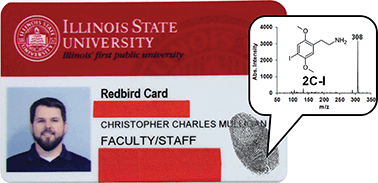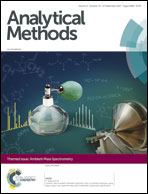Balancing the utility and legality of implementing portable mass spectrometers coupled with ambient ionization in routine law enforcement activities†
Abstract
Ambient sampling, portable MS systems have the potential to allow field processing of forensic evidence, as well as serve as a flexible investigative tool during routine law enforcement activities. However, the underlying legal implications of evidentiary data require the discretion of practitioners to ensure both lawful and ethical usage. Herein, practical and theoretical usage scenarios in traffic control stops are investigated using paper spray ionization-mass spectrometry (PSI-MS) on a portable, ruggedized instrument to demonstrate the field utility for law enforcement personnel, particularly in prompting “probable cause” searching of vehicles. Specific applications include the detection and identification of trace level contraband found as surface residues on automotive surfaces, in the presence of latent fingerprints, and in conjunction with emerging evidence types like adulterated beverages and electronic cigarette liquids. In addition, the current state of U.S. search and seizure law is examined in an effort to discern the presumed legal usage modes from the full analytical potential of the technique. These studies, in turn, can assist in predetermining the investigatory and legal impacts of field deployment of similar instrumentation in policing activities.

- This article is part of the themed collection: Ambient Mass Spectrometry


 Please wait while we load your content...
Please wait while we load your content...